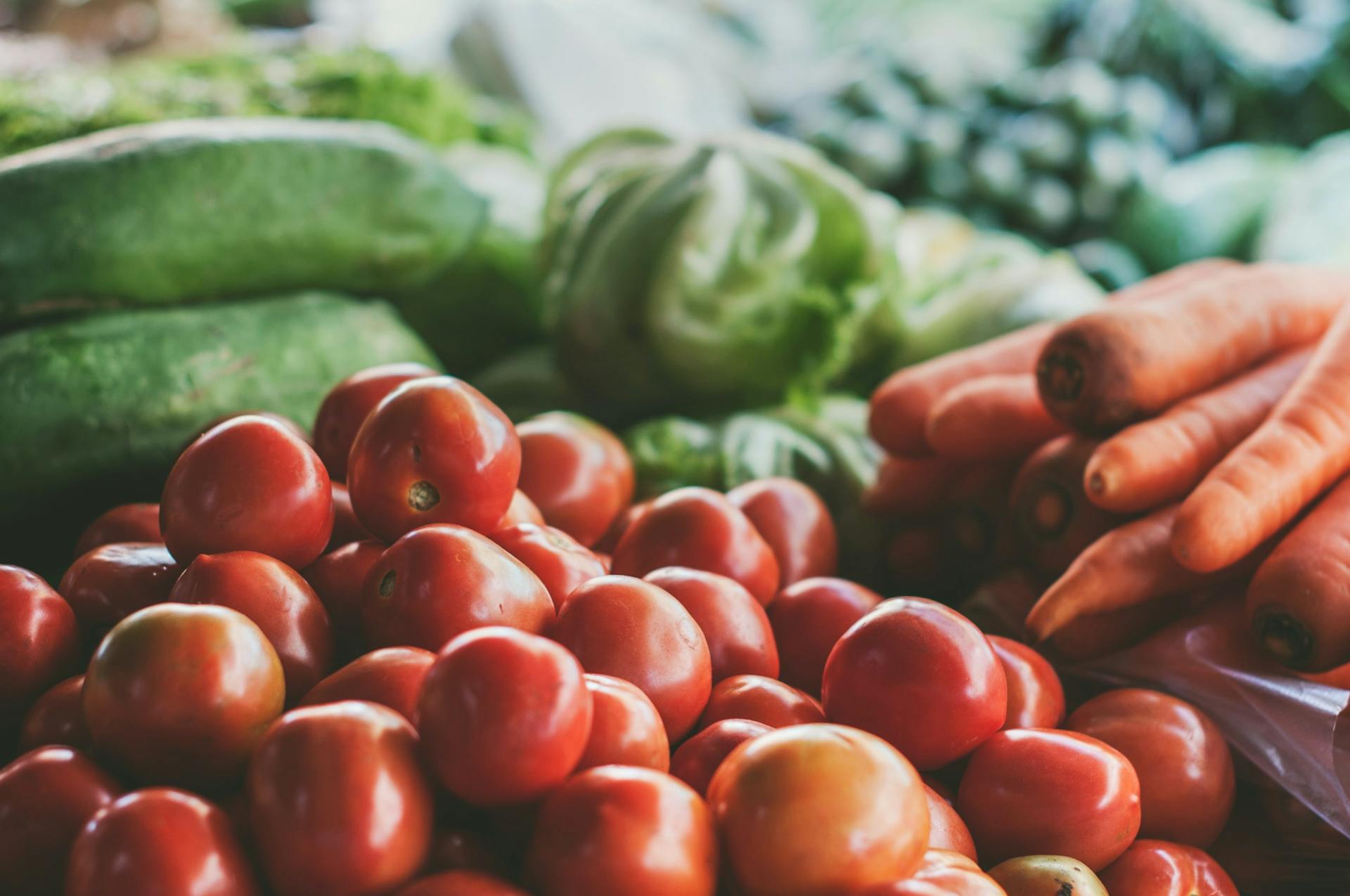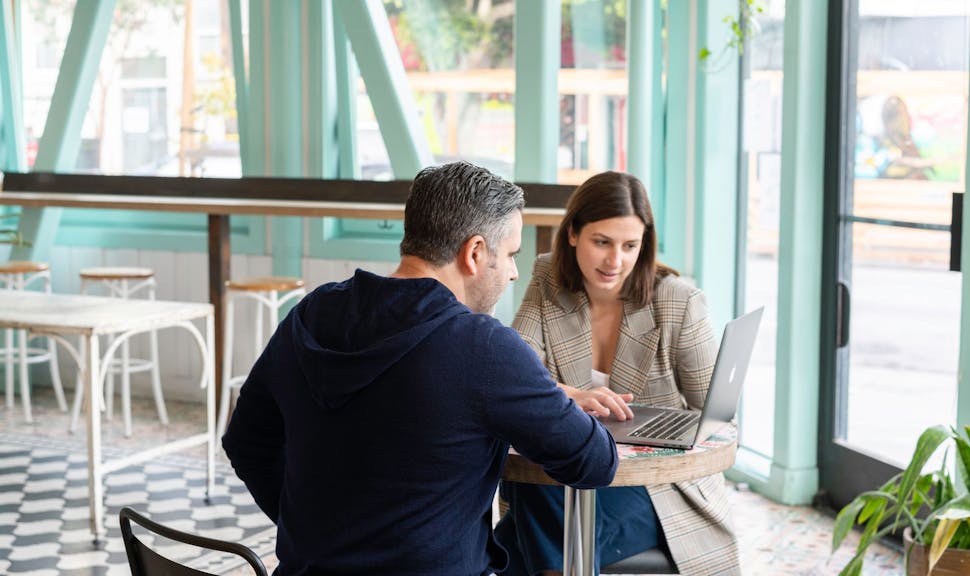
March 22, 2021
How food and beverage companies are adapting to a rise in responsible consumerism
The move towards responsible consumerism continues to gather pace in the UK. Consumers, motivated by a desire to reduce the environmental impact of the products they buy or to consume products they consider to be socially responsible, are changing their buying habits. Alastair Baker, Industry Practices Leader at AXA XL, explains how the food and beverage sector is adapting to this change and ways in which they can prevent, prepare for and manage potential risks.
6 minutes
Original Content: AXA XL
The stereotypical idea of a British meal of meat and two veg
may not quite be a thing of the past, but recent years have seen many more Britons opting to change the way they eat meat and other animal products. Food and beverage producers are tracking and adapting to this trend, which experts predict will continue.
Several of the world’s largest food and beverage producers have signalled they plan to expand the range of plant-based foods they offer in response to consumer demand. Analysts at Barclays Investment Bank predict that the value of the global plant-based food and drink market could increase by 1,000% to £100 billion by the end of this decade.
A recent study by Finder.com found that 14% of UK adults said they were following a meat-free diet, with a further 12% indicating that they intend to become vegetarian, pescatarian or vegan in 2021. And while vegetarianism, pescetarianism and veganism are becoming more popular in the UK, a large part of the growing demand for plant-based foods is coming from meat-eaters who are following semi-vegetarian, or flexitarian,
diets.
Consumers are eating more plant-based food products for several reasons, according to experts. Those include a desire to improve their health and wellness, to reduce their environmental impact and because they have concerns about animal welfare.
Ethical consumerism
And it isn’t just a shift in meat-eating habits that is driving changes to the way British consumers buy food and beverage products. Increasingly, consumers are also motivated by a desire to reduce the carbon impact of their purchasing or to buy products they consider to be sustainable or socially responsible, such as Fair Trade coffee or chocolate.
The Harvard Business Review describes ethical consumerism as companies providing products that appeal to people’s best selves
. Over recent years, there has been a marked trend of consumers paying more attention to where their food and beverage products are grown or reared, the conditions in which they are kept and in which the workers who farm them are treated, and the environmental impact both of how products are made and from where and how they are shipped to the store.
According to the Coop’s most recent Ethical Consumerism Report, released late last year, total ethical consumer spending – including purchases such as clothes and travel – has grown more than four-fold in the past 20 years and now outstrips all UK household expenditure. The ethical food market now totals about £12.5 billion, according to the Coop’s report, and 32% of consumers surveyed said they intended to buy more plant-based and Fair Trade food and beverage products in 2021.
Know and maintain your supply chain
All this has led to greater numbers of consumers paying close attention to the provenance of the food and beverages they buy. They want to know where ingredients – even trace ingredients – are from and how they are farmed or produced.
A compromise to a supply chain can have a catastrophic financial impact on a company’s brand. Clear communication with regulators and customers is vital to maintaining brand loyalty - Shaun Russ, Senior Underwriter, Product Recall, at AXA XL
This means that, to retain customers and ensure brand integrity, it’s key for food and beverage producers to know their supply chains at every level – including second- and even third-tier suppliers. Above all, this requires transparency of information and good communication throughout the chain.
This is even more important following the impact of the COVID-19 pandemic on supply chains. While initially a short-term shock effect, what is becoming increasingly apparent are the more long-lasting implications for the way supply chains are managed around the world.
Our risk engineers are helping clients to better understand these impacts, who their suppliers are, throughout the various tiers of the supply chain, and their potential exposure to bottlenecks and weaknesses in their supply chain and to find ways to mitigate these risks.
We urge our clients to ensure they have a good overview of their supply chain and how resilient it is. They need to ask themselves what goods do I need, where do they come from, and who ships it?
As a general rule, the longer an item is in transit, the greater the number of risks. And over-reliance on a particular supplier or suppliers from one geographic region can cause problems if they are forced to halt or drastically cut their production because of a pandemic or other systemic risk.
In order to maintain their supply chain in these extraordinary times, many clients have been exploring using new carriers to keep their goods moving. It’s important that clients apply the same degree of rigour in assessing the operational security and safety standards of new logistics providers as they would in normal
circumstances.
Have a Plan B
Recent events have also highlighted the importance of having a network of alternate suppliers on which to fall back. And it is important not only to know who your alternate suppliers are, but also what capacity they have.
There’s no point in having a back-up supplier if, when you have to call upon them, they are unable to deliver what you need when you need it. If your alternate suppliers are also alternate suppliers to others, in an event that affects several companies in the same industry, over-reliance on that supplier could create bottlenecks.
So, to the extent that it is possible, knowing who your alternate suppliers will be in the event of a crisis is invaluable – as is having industry intelligence that can alert you if a problem hits your sector more widely.
Brand reputation and risk management
For food and beverage companies, brand reputation is a top risk management priority. And the ethics of where ingredients or supplies come from is now a major factor – alongside issues such as supply-chain disruption and food tampering – in determining the strength of a food and beverage brand’s reputation.
The rapid way in which bad news can be spread via social media adds to increased pressure on food and beverage companies to prevent, manage and recover from risks to their brand.
Crisis management coverage can help food and beverage companies prepare for an event and recover from it should the worst happen. This type of coverage can give clients access to crisis response experts who can help with crisis prevention and response, starting with pre-event planning and training. Among other things, it can provide crisis communication support, for both internal and external communication following a loss event.
Such coverage gives clients access to expert media and social media monitoring. Crisis communication experts are also on hand to help shape messaging and develop statements. And press office support, including help with briefings and spokespeople can also be made available to help clients reposition themselves and recover from potential reputational damage.
Looking ahead
Food and beverage companies have always been alert to changes in the ways their customers want to buy and consume their products. The greater focus on responsible consumerism has prompted some to re-examine what they sell, and the potential risks inherent in the way they source ingredients.
Many major retailers are responding to the trend among consumers to shop more responsibly.
Risk experts and insurers are ready to help producers all along the food and beverage supply chain – from farm to fork, as the saying goes – to manage the risks associated with the changing ways we eat and drink in an holistic way.
This article has been produced by our newly launched Industry Practices Group for Food, Beverage & Agribusiness, Find out more here: www.axaxl.com/IPG-FBA
Global Asset Protection Services, LLC, and its affiliates (AXA XL Risk Consulting
) provides risk assessment reports and other loss prevention services, as requested. This document shall not be construed as indicating the existence or availability under any policy of coverage for any particular type of loss or damage. AXA XL Risk. We specifically disclaim any warranty or representation that compliance with any advice or recommendation in any publication will make a facility or operation safe or healthful, or put it in compliance with any standard, code, law, rule or regulation. Save where expressly agreed in writing, AXA XL Risk Consulting and its related and affiliated companies disclaim all liability for loss or damage suffered by any party arising out of or in connection with this publication, including indirect or consequential loss or damage, howsoever arising. Any party who chooses to rely in any way on the contents of this document does so at their own risk.
US- and Canada-Issued Insurance Policies
In the US, the AXA XL insurance companies are: AXA Insurance Company, Catlin Insurance Company, Inc., Greenwich Insurance Company, Indian Harbor Insurance Company, XL Insurance America, Inc., XL Specialty Insurance Company and T.H.E. Insurance Company. In Canada, coverages are underwritten by XL Specialty Insurance Company - Canadian Branch and AXA Insurance Company - Canadian branch. Coverages may also be underwritten by Lloyd’s Syndicate #2003. Coverages underwritten by Lloyd’s Syndicate #2003 are placed on behalf of the member of Syndicate #2003 by Catlin Canada Inc. Lloyd’s ratings are independent of AXA XL.
US domiciled insurance policies can be written by the following AXA XL surplus lines insurers: XL Catlin Insurance Company UK Limited, Syndicates managed by Catlin Underwriting Agencies Limited and Indian Harbor Insurance Company. Enquires from US residents should be directed to a local insurance agent or broker permitted to write business in the relevant state.



